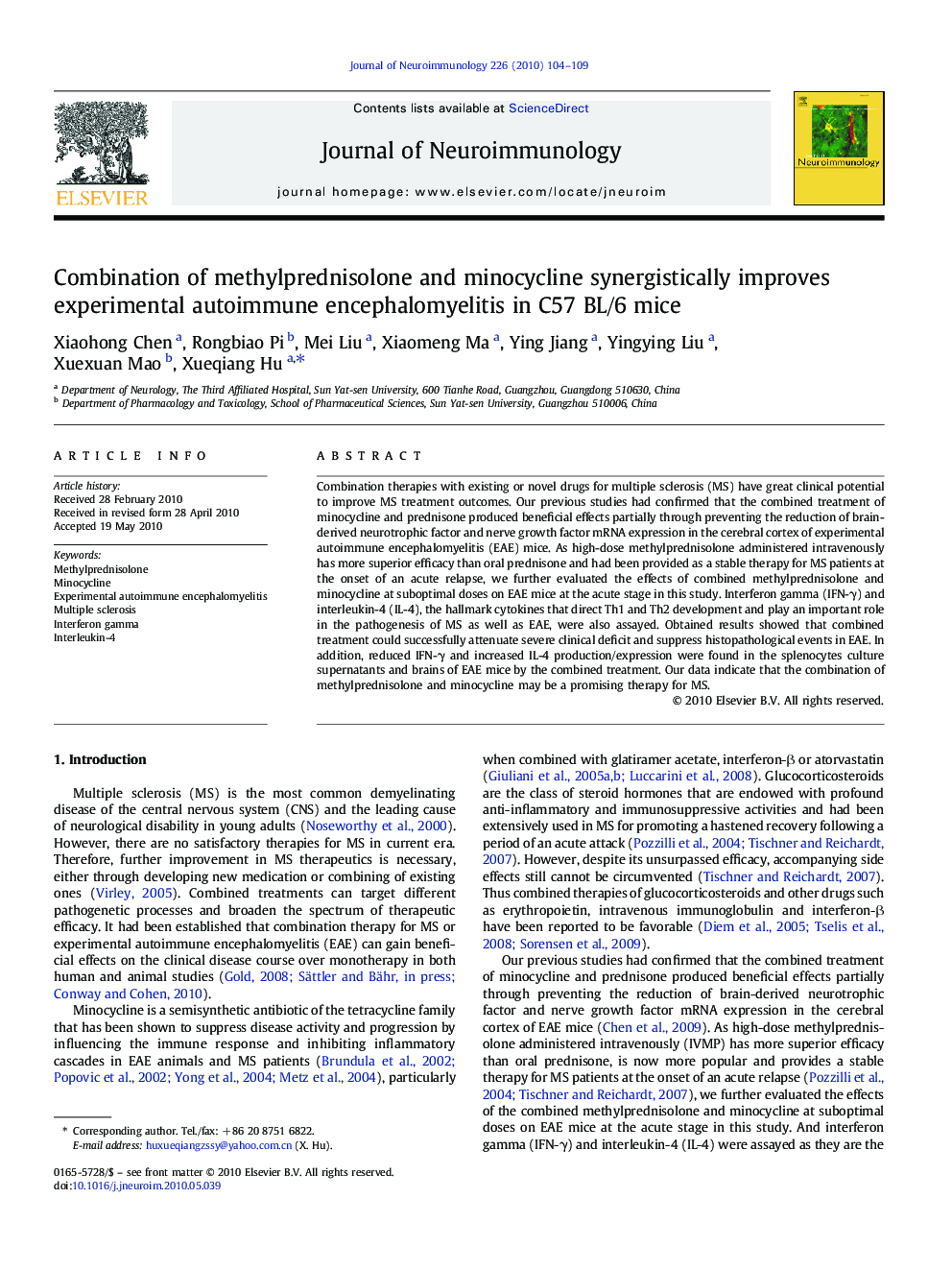| Article ID | Journal | Published Year | Pages | File Type |
|---|---|---|---|---|
| 3064660 | Journal of Neuroimmunology | 2010 | 6 Pages |
Combination therapies with existing or novel drugs for multiple sclerosis (MS) have great clinical potential to improve MS treatment outcomes. Our previous studies had confirmed that the combined treatment of minocycline and prednisone produced beneficial effects partially through preventing the reduction of brain-derived neurotrophic factor and nerve growth factor mRNA expression in the cerebral cortex of experimental autoimmune encephalomyelitis (EAE) mice. As high-dose methylprednisolone administered intravenously has more superior efficacy than oral prednisone and had been provided as a stable therapy for MS patients at the onset of an acute relapse, we further evaluated the effects of combined methylprednisolone and minocycline at suboptimal doses on EAE mice at the acute stage in this study. Interferon gamma (IFN-γ) and interleukin-4 (IL-4), the hallmark cytokines that direct Th1 and Th2 development and play an important role in the pathogenesis of MS as well as EAE, were also assayed. Obtained results showed that combined treatment could successfully attenuate severe clinical deficit and suppress histopathological events in EAE. In addition, reduced IFN-γ and increased IL-4 production/expression were found in the splenocytes culture supernatants and brains of EAE mice by the combined treatment. Our data indicate that the combination of methylprednisolone and minocycline may be a promising therapy for MS.
